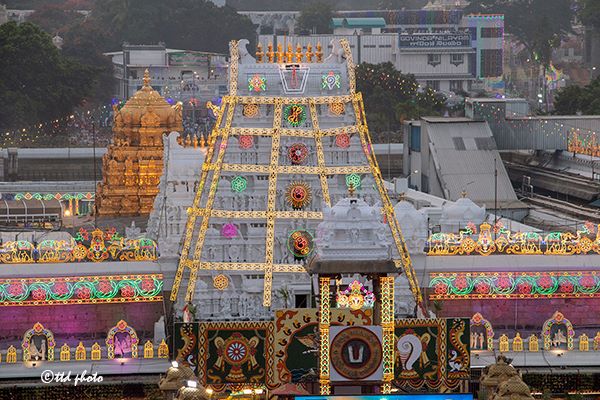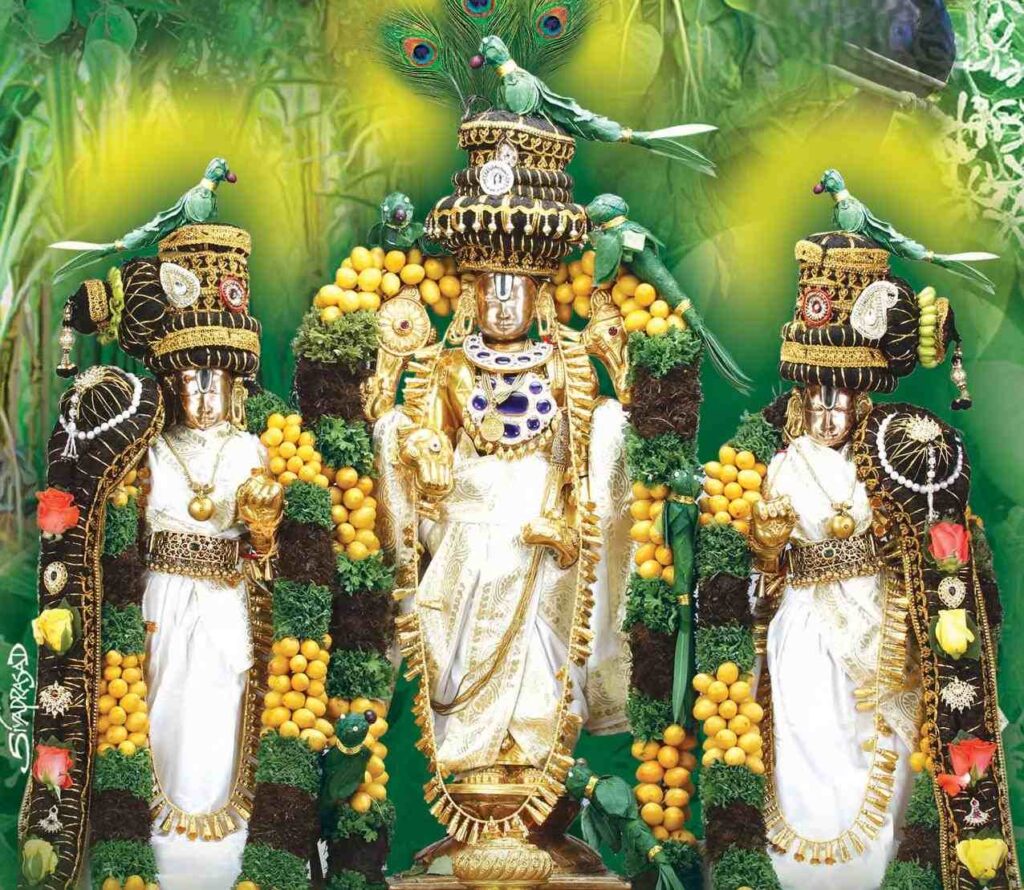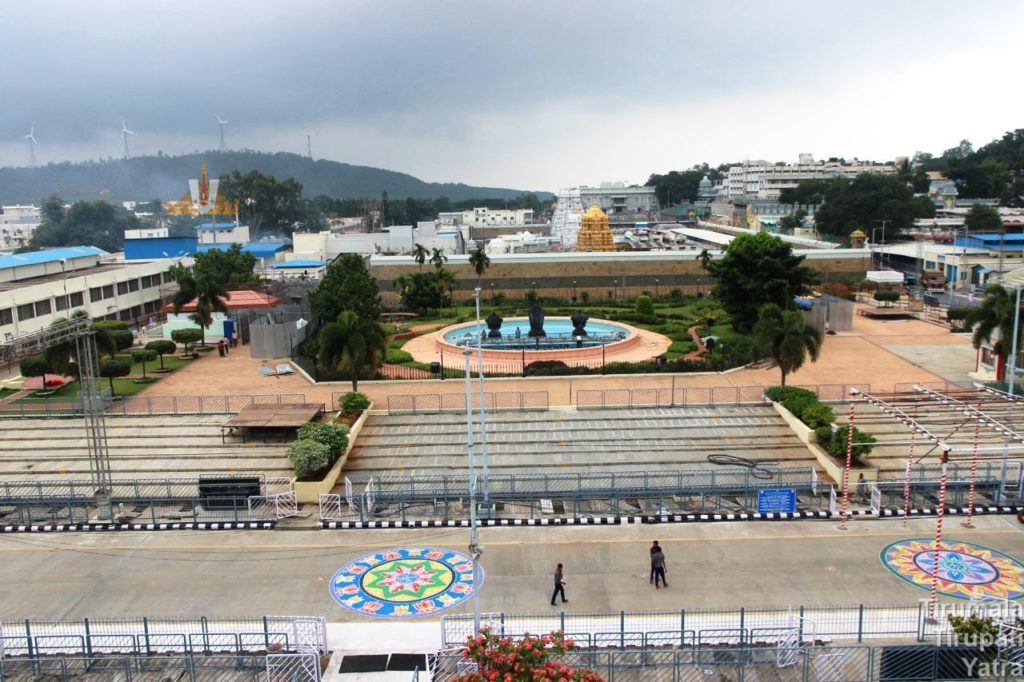Sri Venkateswara Suprabhatam: Wake Up to Divine Blessings Sri Venkateswara or Balaji is the Saviour of Kaliyuga. The devotees have immense belief in Lord Venkateswara. God, in return, showers boons on His devotees, as they desire. The devotees Praise the Lord’s excellence, His pranks, and other interesting stories in various ways. This article ‘A Commentary Read More
Tag: balaji
Sri Venkateswara / Lord Balaji, the supreme Lord of the universe, has manifested Himself on Sri Venkatadri, known as the Vaikuntham of this Kali Yuga.
Sri Venkateswara Mangalasasanam
This article is dedicated to one of the 4 parts of Sri Venkateswara Suprabhatam, Mangalasasanam (or Sri Venkateswara Mangalasasanam) Introduction Sri Venkateswara or Balaji is the Saviour of Kaliyuga. The devotees have immense belief in Lord Venkateswara. God in return is showering boons on His devotees, as per their desires. The devotees Praise the Lord’s Read More
AdiVaraha Kshetra (Tirumala)
AdiVaraha Kshetram It is essential to know the names of the Seven Hills – Seshadri, Neeladri, Garudadri, Anjanadri, Vrushabadri, Narayanadri, and Venkatadri – that is the abode of Lord Venkateswara, the famous Kaliyuga Avatara of Sri Mahavishnu, who descended from the Vaikunta to protect his devotees. He is the world-famous and richest god and is Read More
Sri Venkateswara Prapatti
Explaining Sri Venkateswara Prapatti Sri Venkatesa is the Ultimate God of this age of Kali. He is worshipped today by all, irrespective of caste, creed or sex. There is no place, that equals Tirumala Hills, and no God is matching Sri Venkatesa. The day starts with the ‘Suprabhatam’ at the temple. The Suprabhatam is comprised Read More
Sri Venkateswara Stotram
After waking up the Lord’s Chaitanya through the Suprabhatam hymns, the devotee sings of His glory describing His auspicious qualities and voicing forth the success that is always His. It is of the greatest importance that the Lord’s attributes are extolled; for only then they will come into play for succour in all the aspects Read More
Commentary on Sri Venkateswara Suprabhatam
Sri Venkateswara or Balaji is the Saviour of Kaliyuga. The devotees have immense belief in Lord Venkateswara. God in return is showering boons on His devotees, as per their desires. The devotees Praise the Lord’s excellence, His pranks and other interesting stories in various ways. This article ‘A Commentary on Sri Venkateswara Suprabhatam (or Balaji Read More
Commentary on Balaji Suprabhatam
Sri Venkateswara or Balaji is the Saviour of Kaliyuga. The devotees have immense belief in Lord Venkateswara. God in return is showering boons on His devotees, as per their desires. The devotees Praise the Lord’s excellence, His pranks and other interesting stories in various ways. This article ‘A Commentary on Sri Venkateswara Suprabhatam (or Balaji Read More
Tirupati Balaji Idol Description
A description of the idol of Lord Venkateswara (Tirupati Balaji) The idol of the Lord, Tirupati Balaji, or Lord Venkateswara Swamy is a majestic, beautiful, and superbly executed one. The full majesty, divine grace, and unbounded compassion of the Lord is manifest even to the uninitiated either when the Lord gives darshan draped in all Read More




